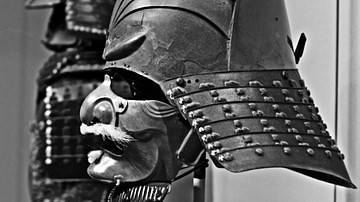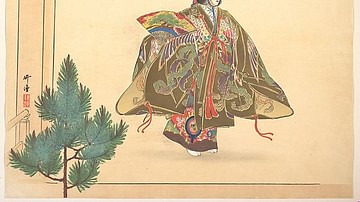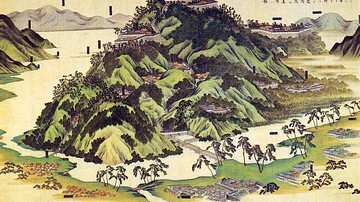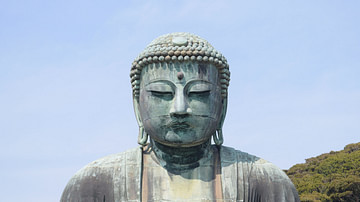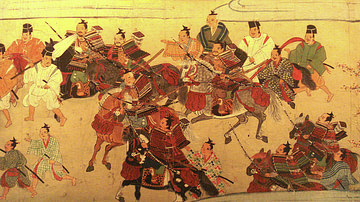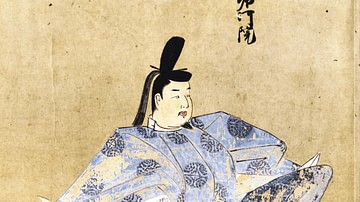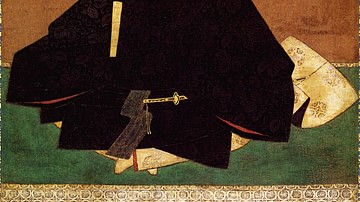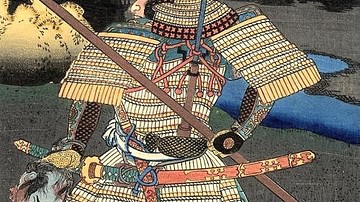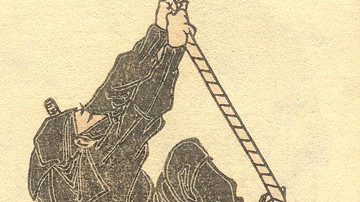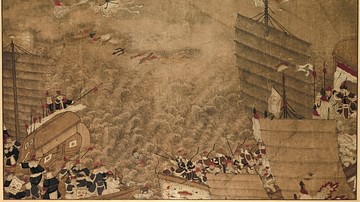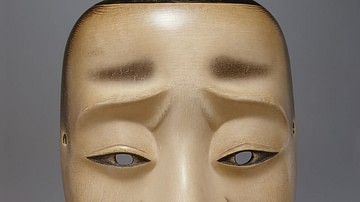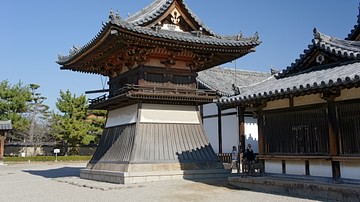The history of medieval Japan (1185-1603 CE) involved the rise of the military and such figures as the shoguns and samurai but there were many other cultural developments in between and during the many wars that troubled the country. In this collection of resources, we examine the principal periods into which medieval Japan is traditionally divided and look at the leaps forward made in agriculture, trade, art and architecture. The samurai might have monopolised the modern world's imagination of Japan in the Middle Ages but other lasting cultural contributions include the spread of Zen Buddhism, the performance of Noh theatre, and the lasting legacies of traditional minimalist ink painting and the Japanese Tea Ceremony.
The success of the Kamakura Shogunte (1192-1333 CE) is perhaps best indicated by its ability to withstand its greatest challenge: the Mongol invasions. The Mongol leader Kublai Khan (r. 1260-1294 CE) was keen to expand his empire and attacked Japan in 1274 and 1281 CE. Both campaigns ultimately failed thanks to stiff samurai resistance, poor logistics and poorly built ships on the part of the Mongols, and two typhoons. These providential storms were called by the Japanese kamikaze or 'divine winds' because they destroyed the Mongol fleets and saved the country.
